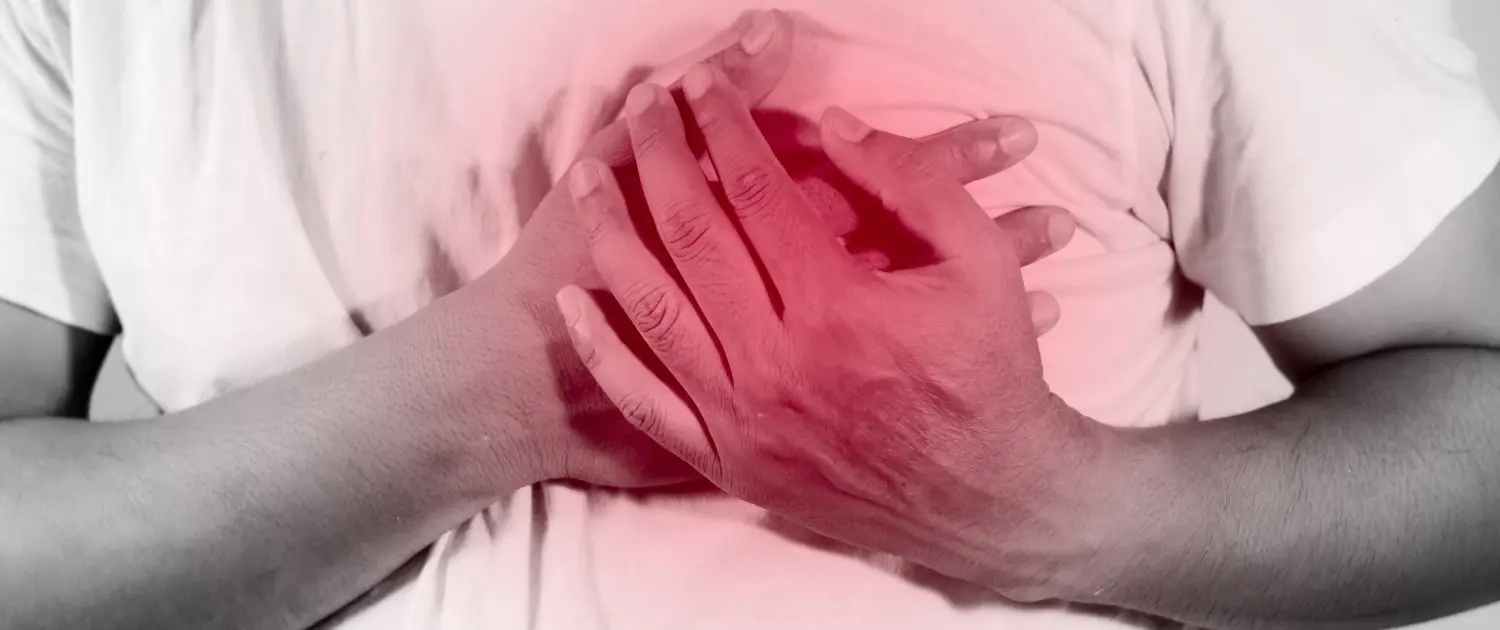What are Psychological Illnesses?
Mental illnesses are conditions that significantly impair a person’s feelings, thoughts, mood and/or behavior. It can occur over a short period of time or develop periodically. Chronic mental illness can affect the patient’s ability to communicate with others and their daily lives. Mental illness should be diagnosed by a mental health professional. There are more than 200 types of psychological illness, but some of the main groups of psychological illnesses can be listed as follows:
- Mood disorders (such as depression and bipolar disorder),
- Anxiety disorders,
- Personality disorders,
- Psychotic disorders (such as schizophrenia),
- Eating disorders,
- Trauma-related disorders (such as post-traumatic stress disorder),
- Substance abuse disorders.
What are Chronic Mental Illnesses?
Any physical or mental health condition that lasts for at least three months and is expected to continue indefinitely is considered chronic. Chronic mental disorders are a condition that continuously challenges the patient’s mental health, consciousness and emotional well-being. The effects of chronic mental illness can range from mild to moderate and even severe impairment. The following information can be given about the most common mental illnesses and their symptoms:
- Bipolar Disorder (Manic-Depressive Disorder): Bipolar disorder is a lifelong chronic mood disorder and mental health problem that causes unusual changes in mood, activity, concentration, energy levels, thinking patterns and behavior.
- The patient may have manic and depressive episodes of variable duration. During manic periods, the person may feel very cheerful, irritable, nervous, tense and hyperactive. They may talk too fast, have a reduced need for sleep, and have competing thoughts. Interest in activities such as eating, drinking and sexuality may increase. They may feel unusually important, capable or powerful.
- During depressive episodes, a person may feel very sad, anxious and restless. They may have a more passive mood, have difficulty falling asleep or sleep too much. People with the disorder may experience slurred speech during the depressive phase and often have difficulty concentrating. They lose interest in all activities and feel unable to do even simple things. They feel hopeless, worthless and may consider suicide.
- Schizophrenia Schizophrenia is a mental illness that can severely affect the way a person thinks, feels and behaves. A combination of genetic and environmental factors play a role in the development of schizophrenia. Schizophrenia is not as common as other major mental illnesses, but it is one of the most chronic and dangerous. The diagnosis is usually made between the ages of 16 and 30. It is very important to start treatment as soon as possible after the first attack.
- Chronic schizophrenia is a persistent syndrome of delusions, hallucinations, speech deprivation or speech incoherence. The patient may also show symptoms such as speaking in a dull voice, showing limited facial expression, difficulty in planning and adhering to various activities, difficulty in motivating himself/herself with pleasurable activities in daily life, avoidance of social interaction and very low energy.
- Anxiety Disorder: Anxiety disorder can be defined as a state in which a person often feels fearful and anxious. Anxiety disorders are chronic and long-term conditions. It can therefore have a significant impact on the patient’s life. It can negatively affect the ability to function at home, at work and in social settings. Anxiety types such as generalized anxiety disorder, obsessive-compulsive disorder, post-traumatic stress disorder, social anxiety disorder and panic attacks can cause the condition to become chronic. Chronic anxiety can cause symptoms such as excessive and unwarranted worry, repetitive and obsessive thoughts, fear and panic, restlessness, difficulty relaxing, irritability, shortness of breath, sleep disturbance, nausea, headaches and rapid heartbeat.
- Depression There are many subtypes of depression. Chronic depressive disorder is a psychological condition in which mild or moderate symptoms such as sadness and hopelessness persist for a long time. This condition is also referred to as dysthymia. Symptoms are similar to those of clinical depression, but occur less frequently and are milder in severity. Symptoms include sadness and depressed mood most of the day, loss of pleasure, major changes in weight, insomnia and oversleeping almost every day, problems with focus, feelings of worthlessness and guilt, thoughts of death or suicide attempts.
- Borderline Personality Disorder: A mental health condition characterized by extreme mood swings, instability in interpersonal relationships and impulsivity. Patients have an intense fear of abandonment and have difficulty controlling anger-like emotions. It is more common in people with a family history of borderline personality disorder. It is not a preventable disease as it is mostly inherited. It is therefore essential that symptoms are well understood and that treatment is started as early as possible. Treatment is mostly aimed at managing symptoms and improving quality of life.
- Impulse Control Disorders: Patients have impulses that can harm themselves or others and struggle to resist these impulses. Kleptomania and compulsive gambling are impulse control disorders that can also be called process addictions.
- Eating Disorders: Excessive behaviors, feelings and attitudes about weight and food are hallmarks of eating disorders. The most common eating disorders are anorexia nervosa and bulimia nervosa.
- Neurodevelopmental Disorders: These disorders affect the way the brain works. Neurodevelopmental disorders, which are more common in children, can persist from adolescence into adulthood. Autism and attention deficit/hyperactivity disorder are common examples.

What Are the Most Dangerous Psychological Illnesses?
Dangerous mental illnesses can lead to a high risk of death and suicide. When suicide-related deaths are analyzed, borderline personality disorder, depression, bipolar disorder, schizophrenia, alcohol use disorders and anorexia nervosa in women increase the risk more than 10 times compared to the general population. It is known that up to fifty percent of schizophrenia patients attempt suicide. About fifteen percent of those who are clinically depressed commit suicide. However, eating disorders have the highest mortality rate among mental illnesses. It is not only the high risk of suicide that makes an eating disorder dangerous, but also the chronic malnutrition that results in a physical burden on the body. Mental and physical assault, sudden heart attacks, multiple organ failure and other deadly consequences of long-term malnutrition increase mortality.
What are the Most Severe Psychological Illnesses?
Severe mental illnesses are diagnosable diseases that cause severe functional impairments that significantly impede or limit the life of one or more people. Examples of the most difficult mental illnesses include bipolar disorder, major depressive disorder, post-traumatic stress disorders and schizophrenia. However, all mental health problems can affect quality of life to varying degrees. This is why many psychological illnesses can be characterized as “severe”. According to the definition of some institutions and organizations, chronic mental disorders first develop into severe and persistent, and then into severe psychological illnesses.
How are Psychological Illnesses Diagnosed?
It is important to be diagnosed by a health professional who specializes in mental illness. An accurate diagnosis is needed so that the correct treatment procedure can be applied. The health professional will listen carefully to the symptoms to diagnose the disease. Patients or clients should talk in detail during these interviews if there are triggers that may cause their mental health to deteriorate, if these problems are chronic or come and go. There is no medical test that can directly diagnose mental disorders. However, health professionals may request tests such as blood tests or imaging examinations to rule out other conditions that may affect mental health.
Can Dangerous Psychological Illnesses Be Treated?
The treatment plan varies depending on the mental illness. In most cases, treatment combinations of several procedures give the most effective result. Especially in the treatment of serious illnesses such as schizophrenia, teamwork and advanced treatment methods may be necessary. The treatments that can be applied for the treatment of psychological illnesses can be briefly mentioned as follows:
- Medication Psychiatric medication is often used to manage symptoms, although it does not cure the disease. Although medication is not as effective as treatment modalities such as psychotherapy, in advanced cases it can be helpful in supporting other treatments. Medicines are selected specifically for the patient’s condition and reactions.
- Antidepressants are used to treat depression, anxiety and some other conditions. They can help improve symptoms such as sadness, hopelessness, lack of energy, difficulty concentrating and lack of interest in activities.
- Anti-anxiety medication groups can be used to treat anxiety disorders and conditions such as panic attack disorder. It can also be used to relieve symptoms such as agitation and insomnia. Mood stabilizers are used to treat bipolar disorders, including episodes of mania and depression. In some cases of depression they can be used together with antidepressants.
- Antipsychotic drug groups are typically used to treat disorders such as schizophrenia. These medicines can also be used in bipolar disorder, and can also be used in combination with antidepressants to treat depression. All these drug groups should be prescribed by specialists if deemed necessary and should be used at the recommended dose and duration.
- Psychotherapy: Also known as talk therapy. Treatment procedures that involve talking to a mental health professional about relevant issues. With the insights and knowledge gained during these interviews, the patient acquires coping and stress management skills. There are different types of psychotherapy for each mental health condition. Psychotherapies are often completed in a few months, but in some serious cases longer treatment may be needed.
- Brain Stimulation Treatments: Can be used for depression and other mental health problems. It is often used when medication and psychotherapy do not work. Electroconvulsive therapy includes repetitive transcranial magnetic stimulation, deep brain stimulation and vagus stimulation. All risks and benefits of the treatment should be explained in detail by the health professional.
- Lifestyle Changes: Healthy habits such as avoiding alcohol and other addictive products, exercising, getting enough sleep, eating a healthy diet and avoiding stress.
Mental illnesses are important health problems that need to be treated. If you or someone close to you shows symptoms of mental illness, it is advisable to contact the relevant health professionals as soon as possible.





